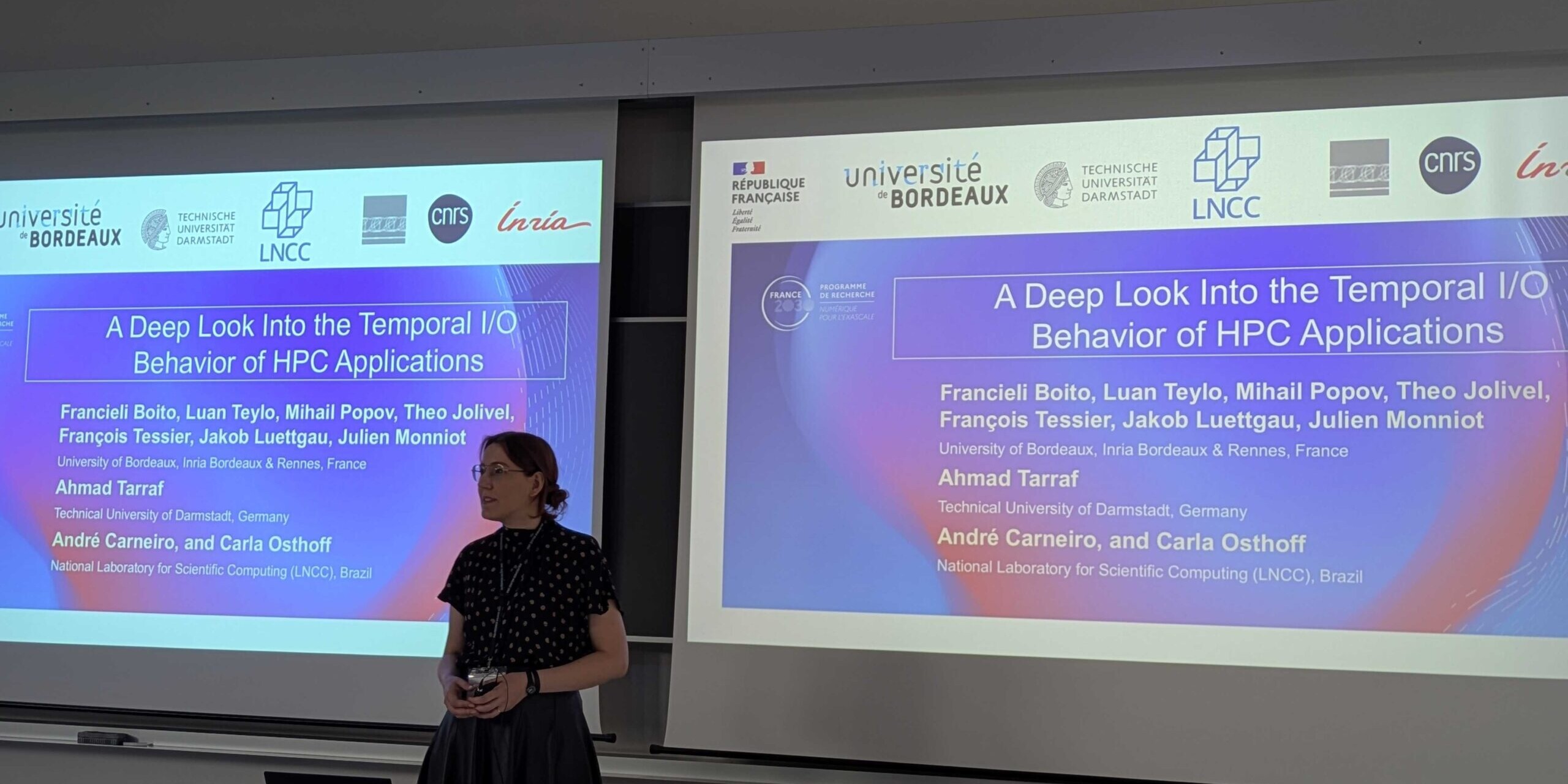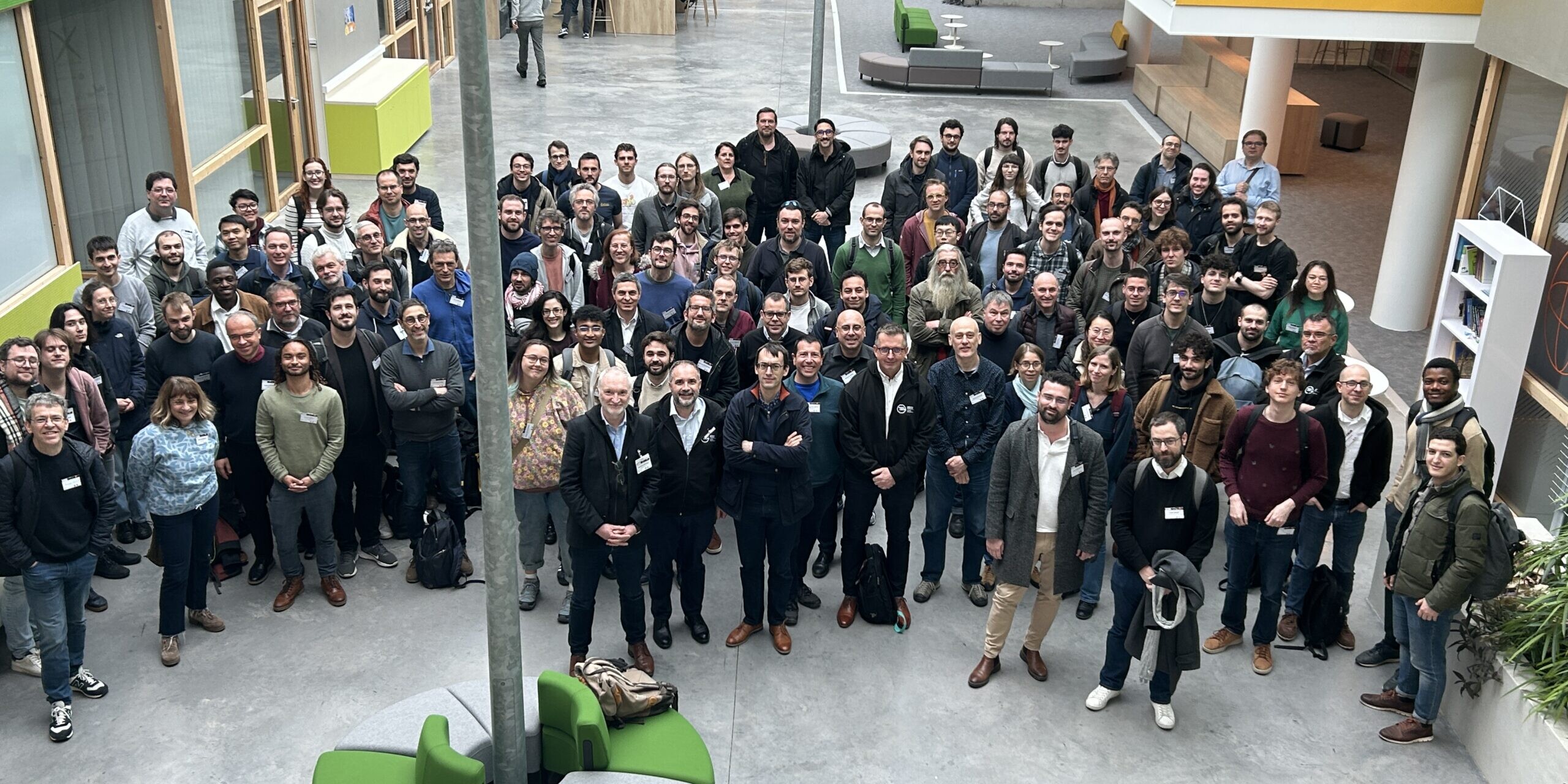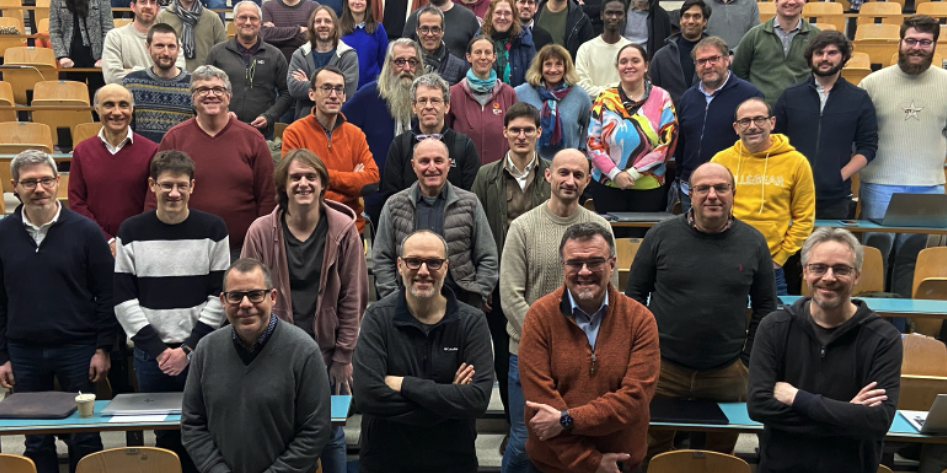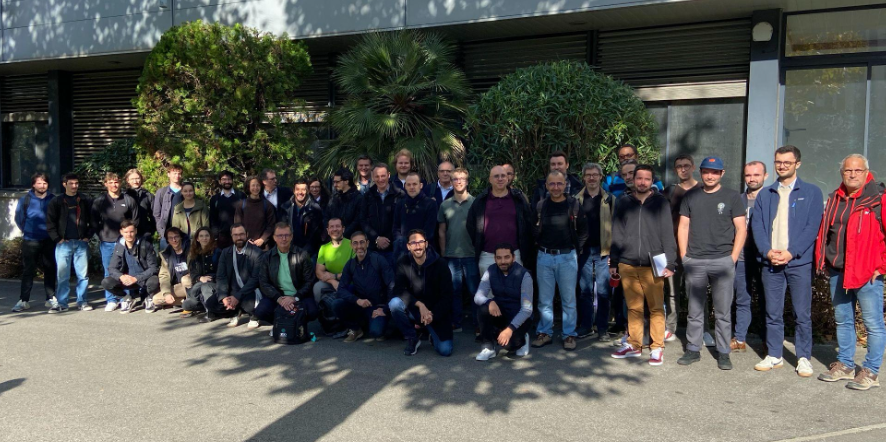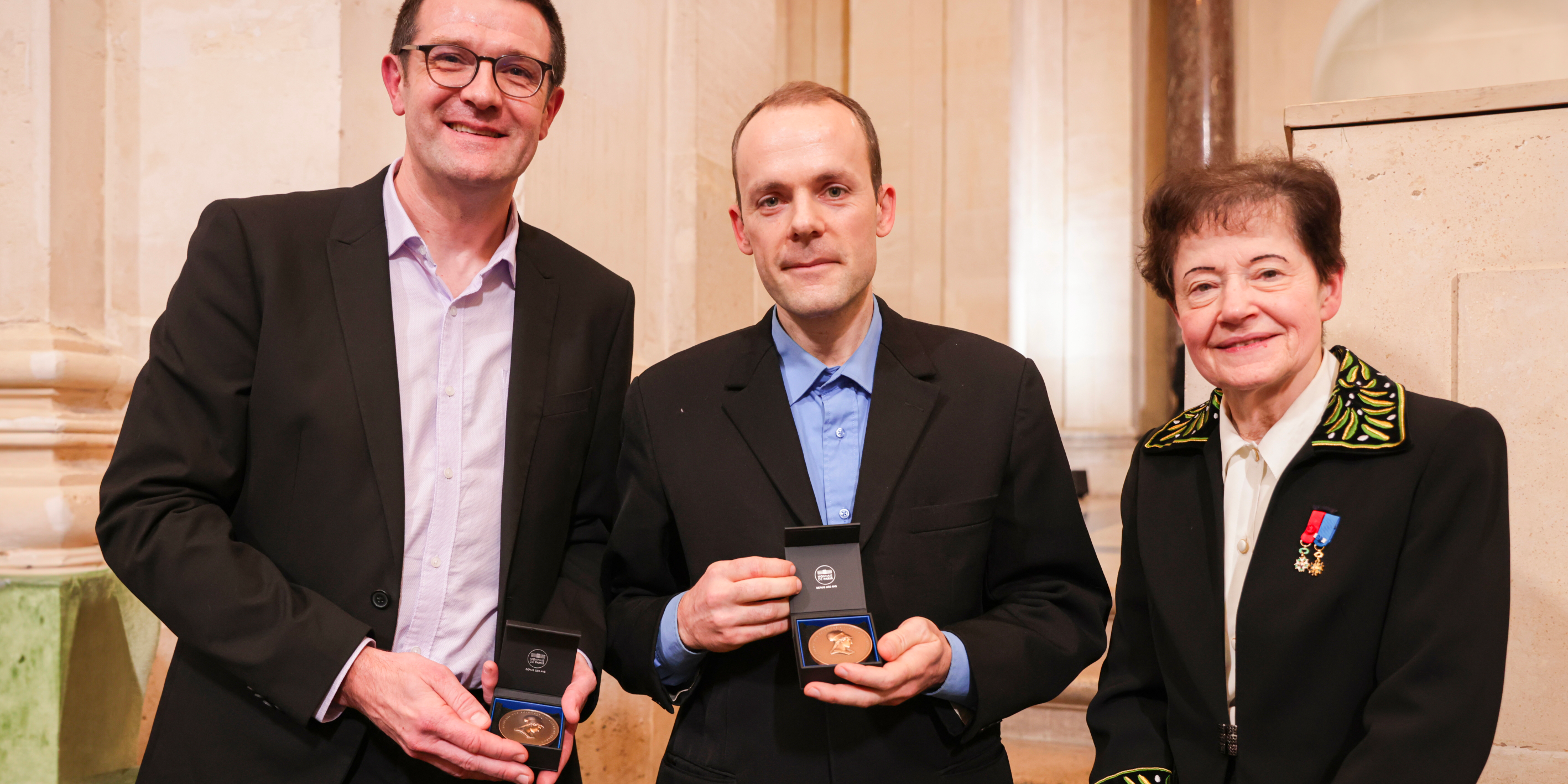The first co-design/co-development workshop of the Exa-DI project (Development and Integration) of the PEPR NumPEx had the topic “Efficient Discretisation for PDE@Exascale” and took place on November 7 and 8, 2023 at the Amphithéâtre J. Talairach (Neurospin) at CEA Saclay in Gif-sur-Yvette.
This face-to-face workshop brought together for two days Exa-DI members, members of the other NumPEx projects (Exa-MA: Methods and Algorithms for Exascale, Exa-SofT: HPC Software and Tools, Exa-DoST: Data-oriented Software and Tools for the Exascale and Exa-AToW: Architectures and Tools for Large-Scale Workflows), Application demonstrators (ADs) from various research and industry sectors and Experts to discuss advancements and future directions for efficient discretisation of physics-based partial differential equations (PDEs) at exascalein discretizing partial differential equations (PDEs) efficiently for exascale applications.
This workshop is the first co-design/co-development workshops in the series whose main objective is to promote co-software stack development strategies to accelerate exascale development and performance portability of computational science and engineering applications. Discussions included challenges in co-design and co-development process, key questions and most urgent issues for collective exploration building links across NumPEx and the applications, and initiatives promoting exascale software stack sustainability, emphasizing collaboration and innovation.
Key sessions included
- Introduction and Context: Setting the stage for the workshop’s main theme.
- Attendees Self-Introduction: Allowing attendees to introduce themselves and their interests.
- Various Technical Sessions: These sessions featured talks on topics like exascale performance evaluation and advancements in exascale simulations for different applications like durable aircraft prototype, CO2 sequestration, turbomachinery, Earth dynamo simulations, dynamic energy simulation for urban buildings, structural and fluid mechanics simulations, geoscience simulations and finally plasma turbulence simualtions. In addition, an expert does a presentation of Kokkos.
- Discussions and RoundTables: These sessions provided opportunities for attendees to engage in discussions and share insights on the presented topics.
Invited speakers
- Jean-Pierre Vilotte from CNRS, member of Exa-DI who provided the introductory context for the workshop.
- Eric Savin from ONERA, discussing exascale performance evaluation for a durable aircraft prototype.
- Henri Calandra from TotalEnergies, discussing exascale multiphysics simulators for CO2 sequestration and monitoring.
- Christian Trott from SNL, presenting on Kokkos.
- Julien Vanharen & Loic Marechal from Inria, addressing exascale simulations for turbomachinery.
- Nathanaël Schaeffer & Hugo Frezat from CNRS, exploring machine learning applications in Earth dynamo simulations.
- Vincent Chabannes & Christophe Prud’homme from Université de Strasbourg, discussing dynamic energy simulation for urban buildings.
- Olivier Jamond from CEA, presenting a new generation HPC PDE solver targeting industrial applications in structural and fluid mechanics, the MANTA project.
- Soleiman Yousef from IFP Energies nouvelles, discussing performance issues in geoscience applications.
- Virginie GrandGirard from CEA, discussing the GYSELA code for plasma turbulence simulations.
Outcomes and impacts
A very interesting and simulating outcome that was discussed and decided during this workshop is the set-up of a working group addressing a suite of shared and well specified proxy-apps and mini-apps for this co-design computation and communication motif. Several teams of ADs have expressed their interest in participating in this working group which is being formed and whose first meeting should take place next January.
The discussions allowed us to determine the different goals of this working group. In particular, the criteria of the common mini-apps and proxy-apps that will be build was defined. They have to (i) represent algorithms, data structures and layouts, and other computational and communication characteristics across the different application demonstrators, (ii) leverage and integrate logical suites of software components (libraries, frameworks, tools), (iii) measure interoperability levels, performance gain and/or trade-off between components, performance portability, scalability and software quality and (iv) develop collaborative and shared continuous integration and benchmarking methodologies with standardized performance tools to guide optimizations, together with reference meta-data and specifications models.
The second main goal of this working group that is also a main goal of the workshop series is to identify the human resources and expertise in the CDT (Computational and Data Team) that Exa-DI needs to deploy. In the co-design/co-development process, the CDT will ensure the interface between the NumPEx projects and the ADs teams to support the co-design and co-development of the mini-apps and proxy-apps suite, together with reference data models for sharing specifications and benchmarking/testing results.
Attendees
- Jean-Pierre Vilotte, CNRS and member of Exa-DI
- Valérie Brenner, CEA and member of Exa-DI
- Jérôme Bobin, CEA and member of Exa-DI
- Mark Asch, Université Picardie and member of Exa-DI
- Julien Bigot, Inria and member of Exa-DI
- Karim Hasnaoui, CNRS and member of Exa-DI
- Christophe Prud’homme, Université de Strasbourg and member of Exa-MA
- Hélène Barucq, Inria and member of Exa-MA
- Guillaume Latu, CEA and member of Exa-MA
- Raymond Namyst, Université de Bordeaux and member de Exa-SoFT
- Joshua Bowen, Inria and member of Exa-DoST
- Christian Robert Trott, Sandia National Laboratories
- Virginie Grandgirard, CEA and application demonstrator
- Youssef Soleiman, IFPEN and application demonstrator
- Stéphane de Chaisemartin, IFPEN and application demonstrator
- Ani Anciaux Sedrakian, IFPEN and application demonstrator
- Julien Vanharen, Inria and application demonstrator
- Loic Marechal, Inria and application demonstrator
- Nathanael Saeffer, CNRS and application demonstrator
- Hugo Frezat, CNRS and application demonstrator
- Savin Eric, Onera and application demonstrator
- Denis Gueyffier, Onera and application demonstrator
- Henri Calandra, Total Energies and application demonstrator
- Stefano Frambati, Total Energies and application demonstrator
- Olivier Jamon, CEA and application demonstrator
- Nicolas Lelong, CEA and application demonstrator
- Vincent Chabanne, Université de Strasbourg and application demonstrator
NumPEx Newsletter
Subscribe to our newsletter to stay informed on the latest breakthroughs in High-Performance Computing, Exascale research, and cutting-edge digital innovations.
You may also be interested in these articles
17/04/2025
2025 InPEx workshop
13/03/2025
NumPEx holds its first General Assembly
04/03/2025
The 2025 annual meeting of Exa-MA
30/01/2025

